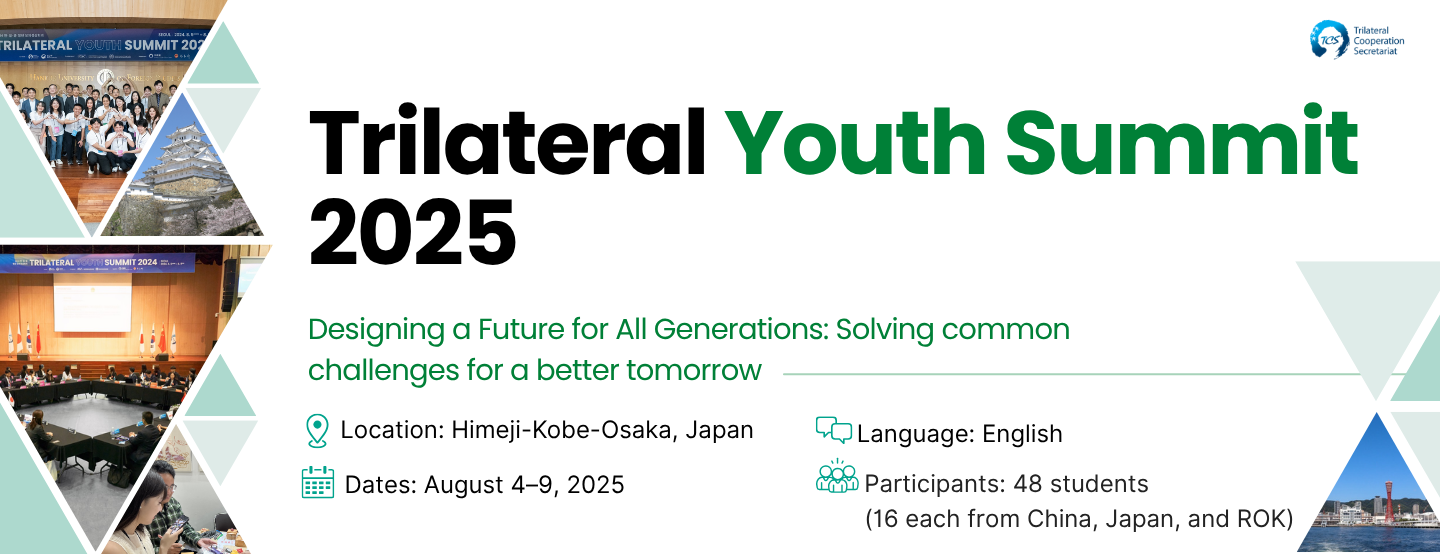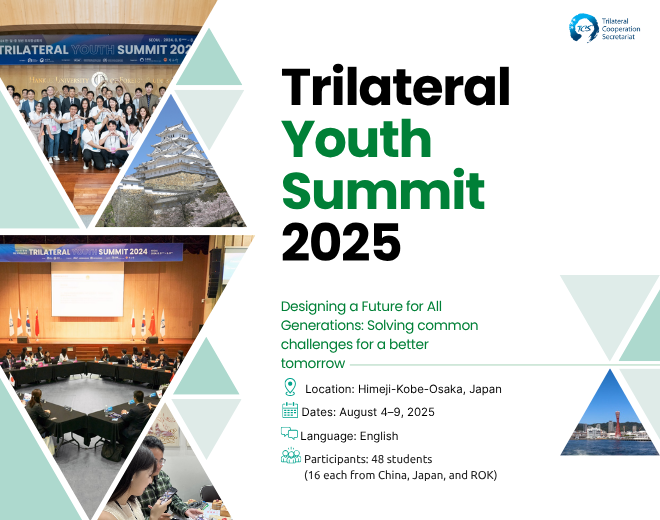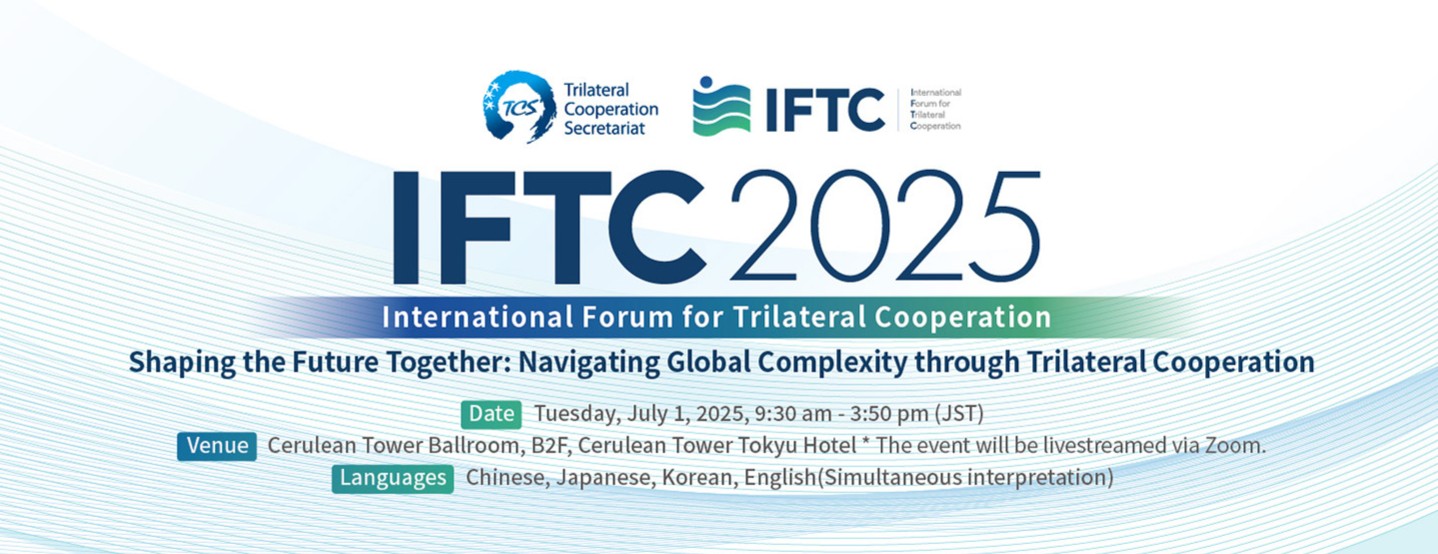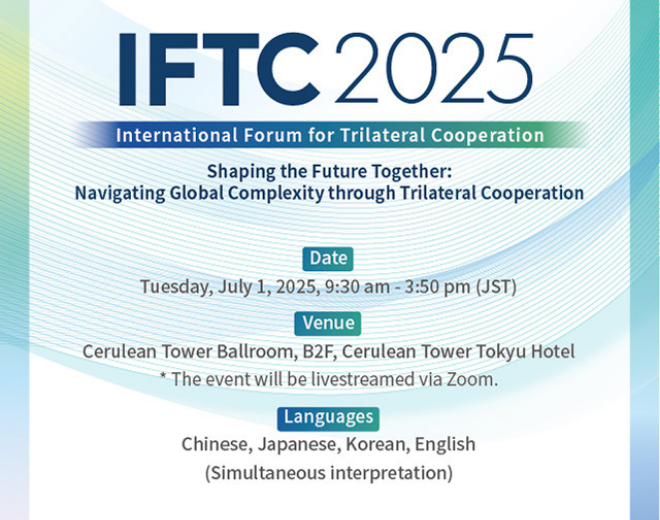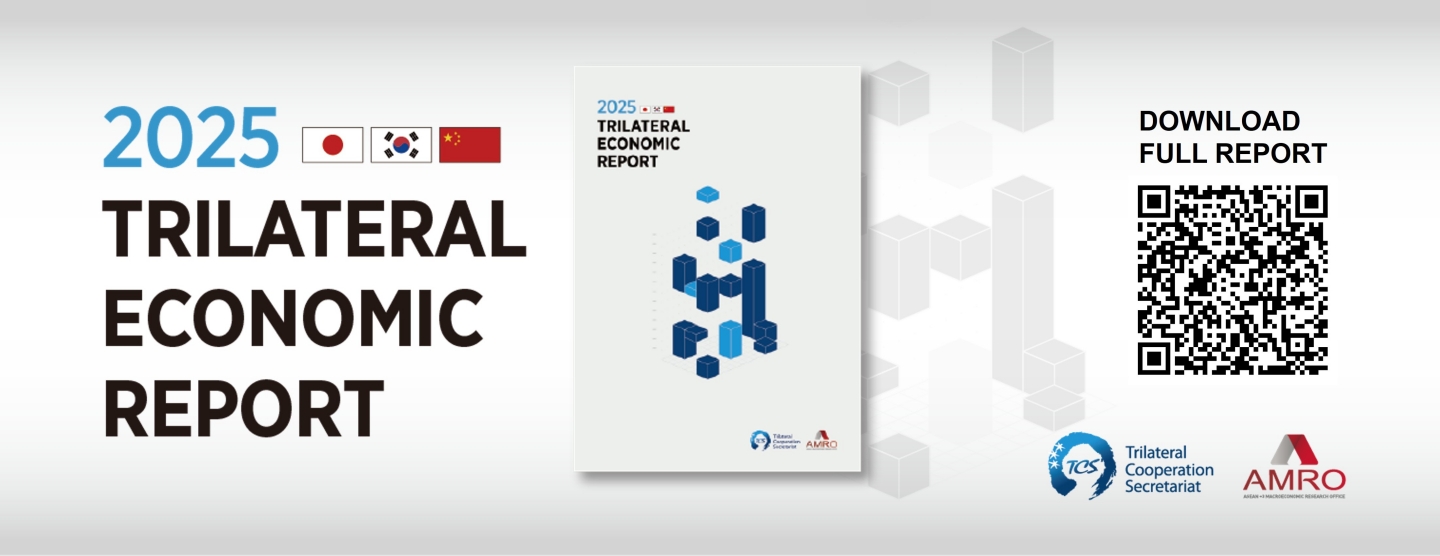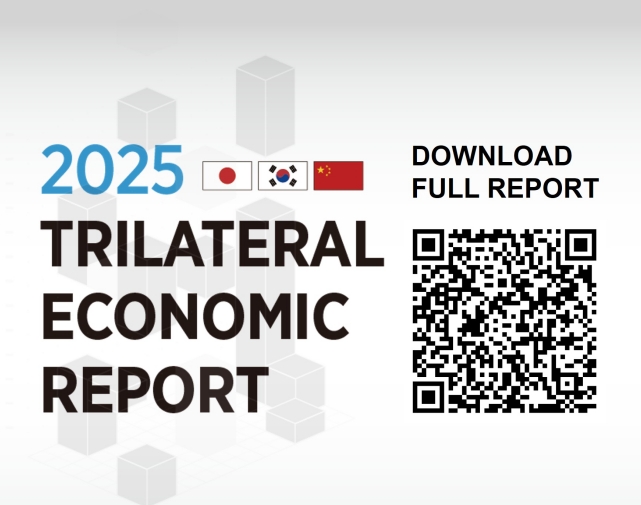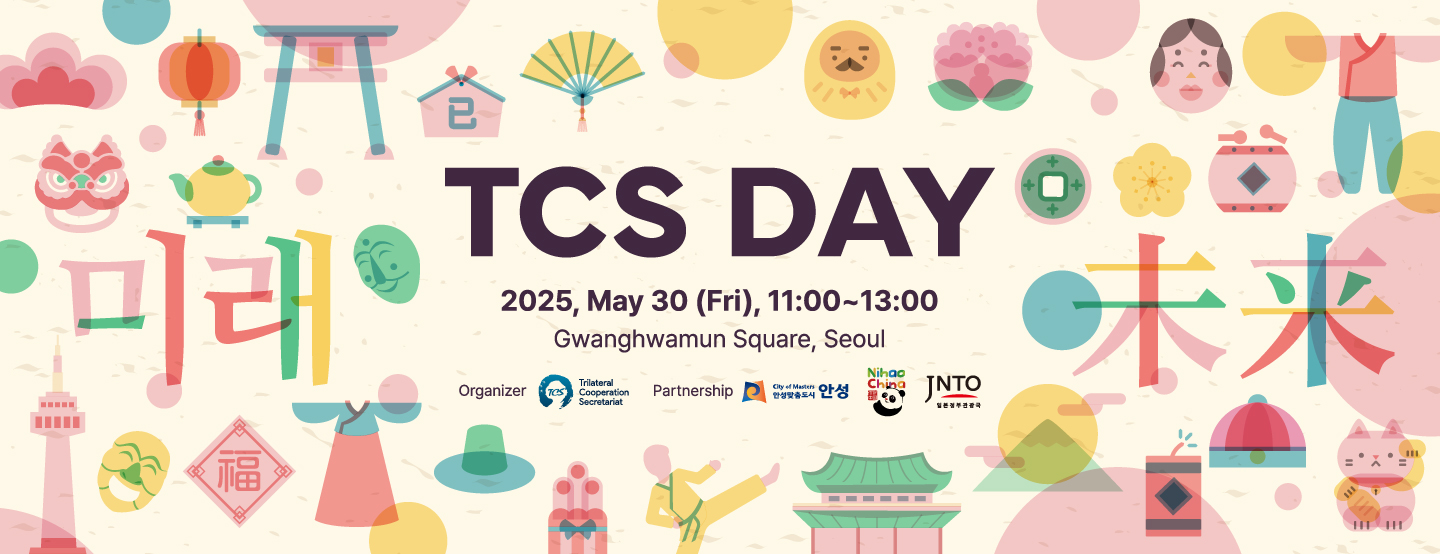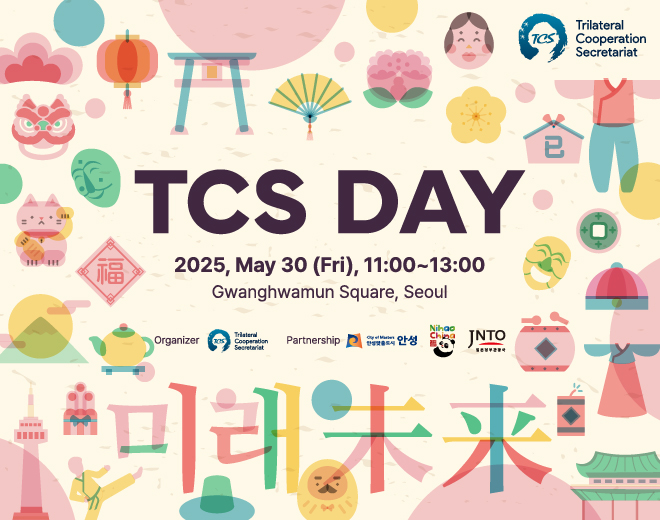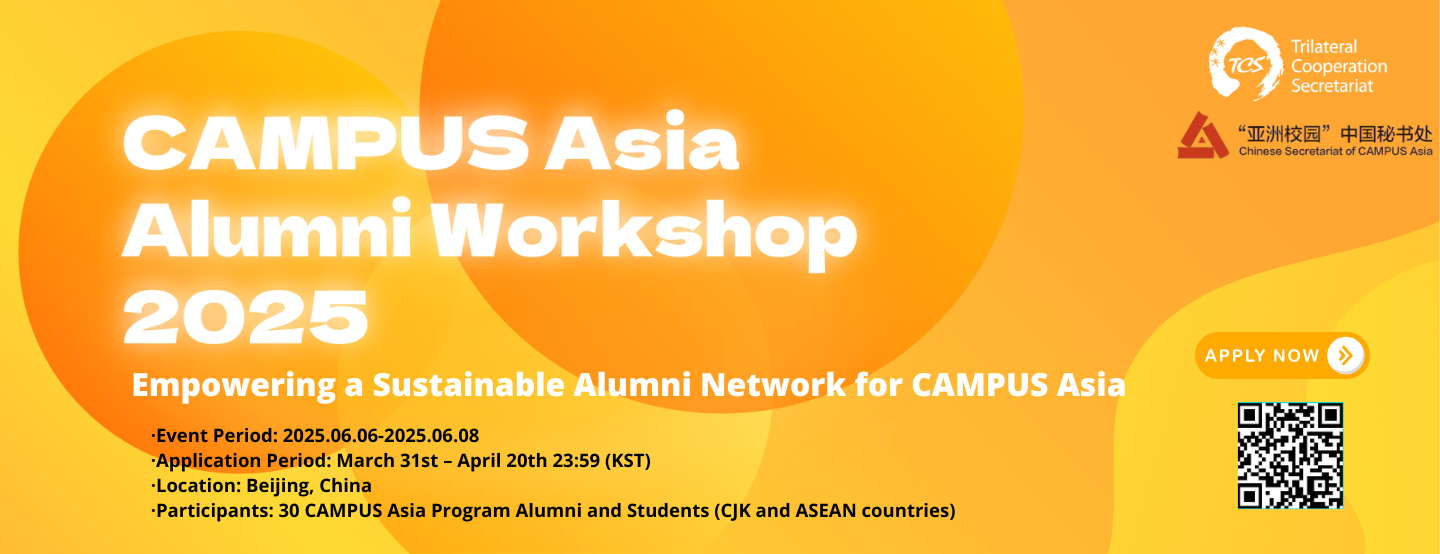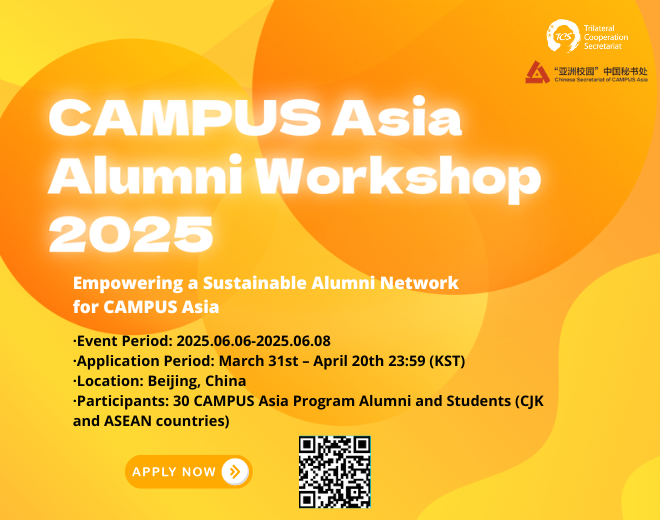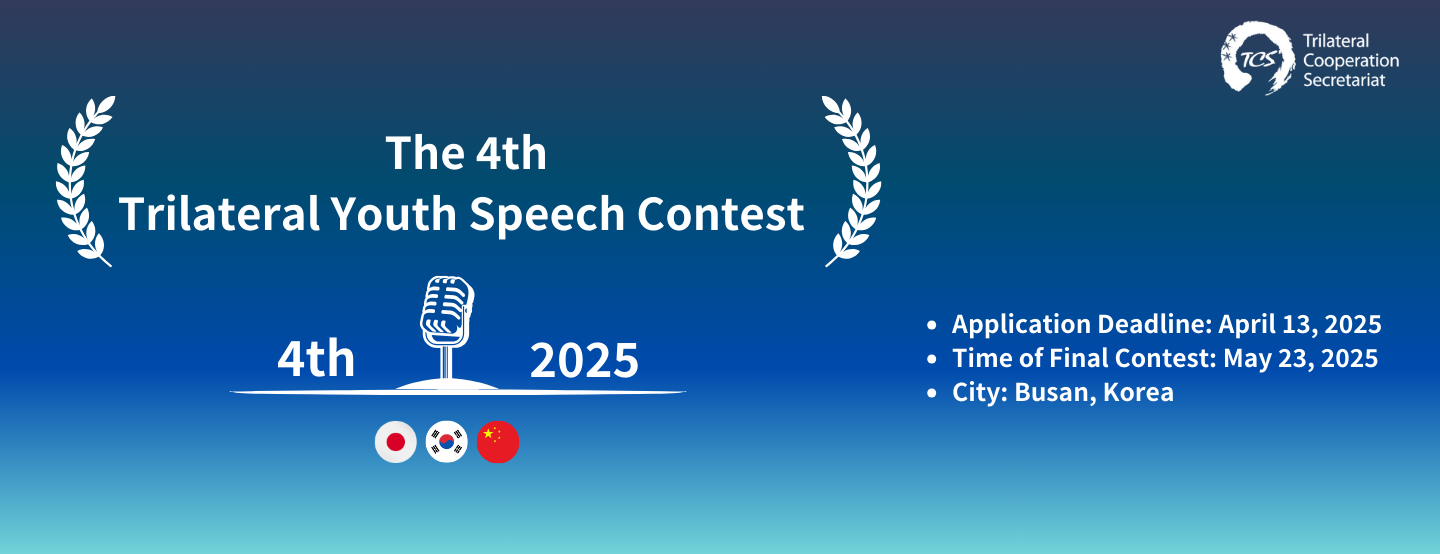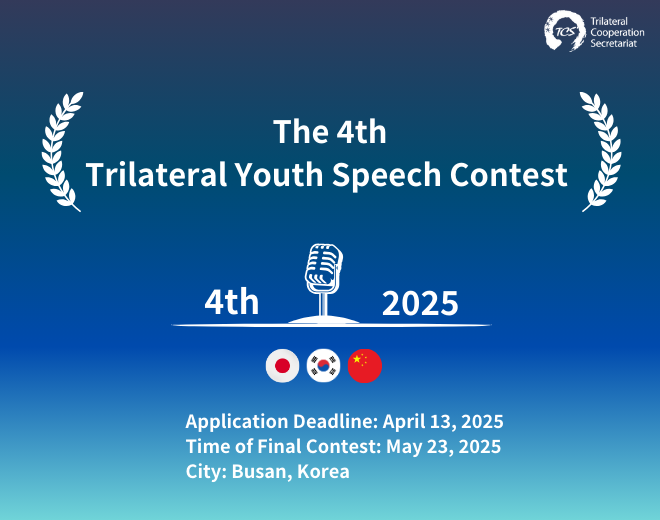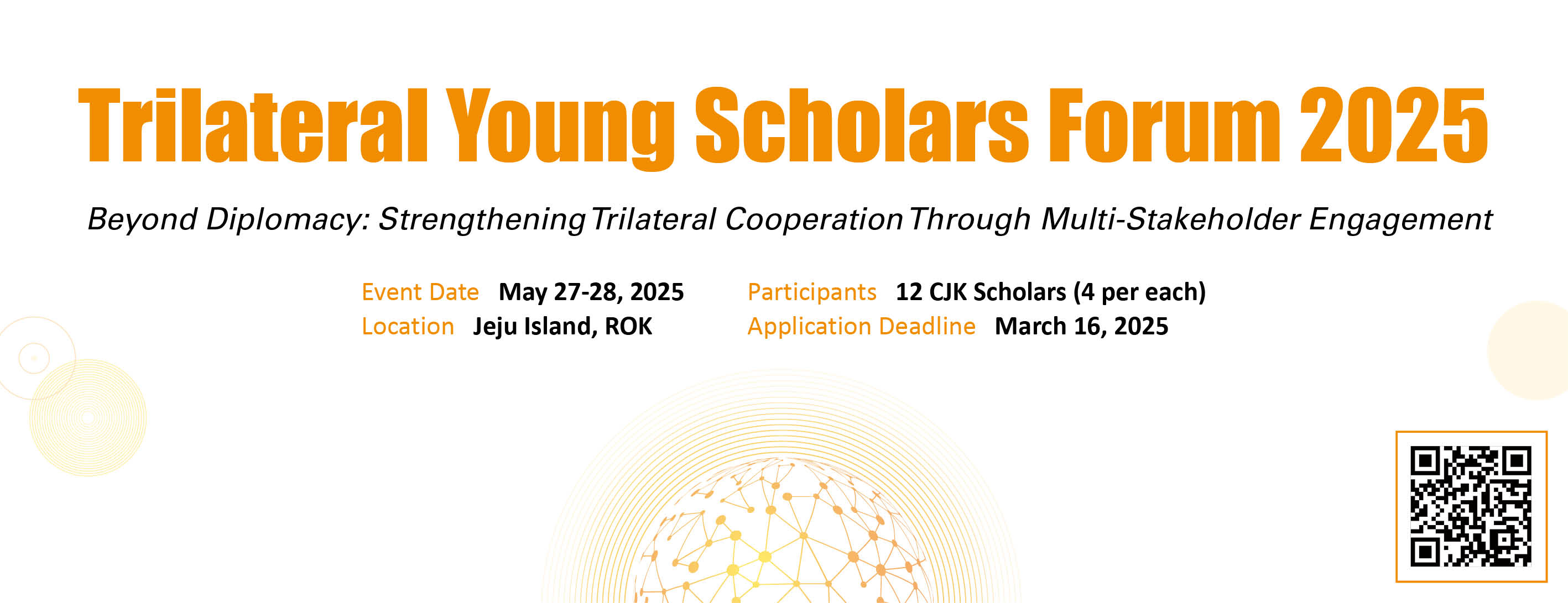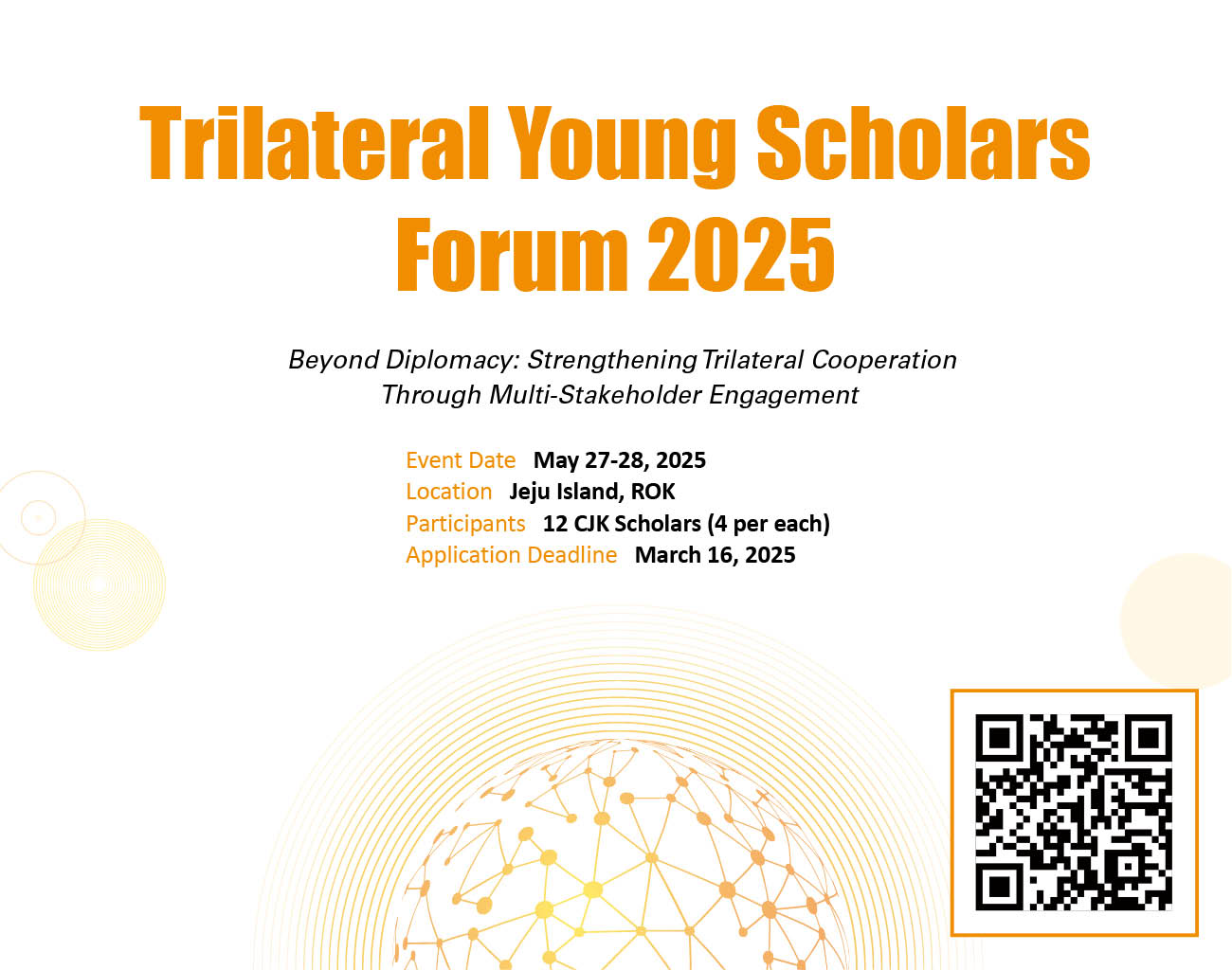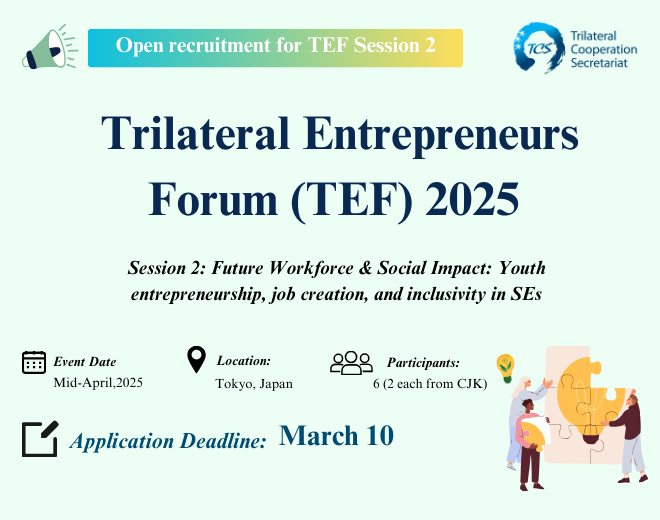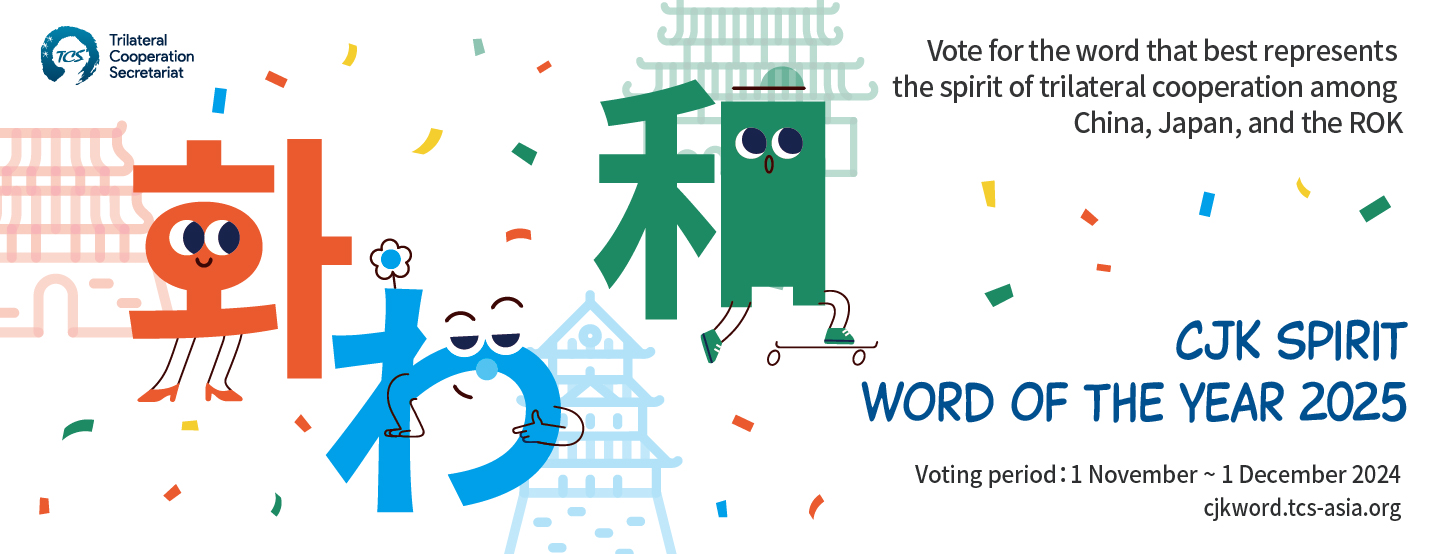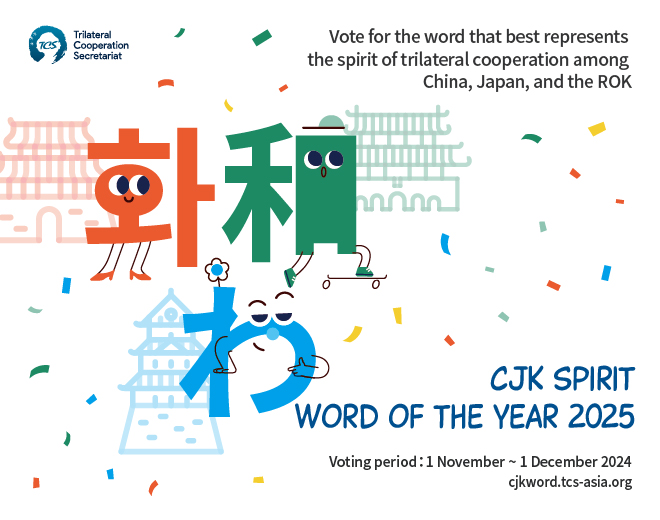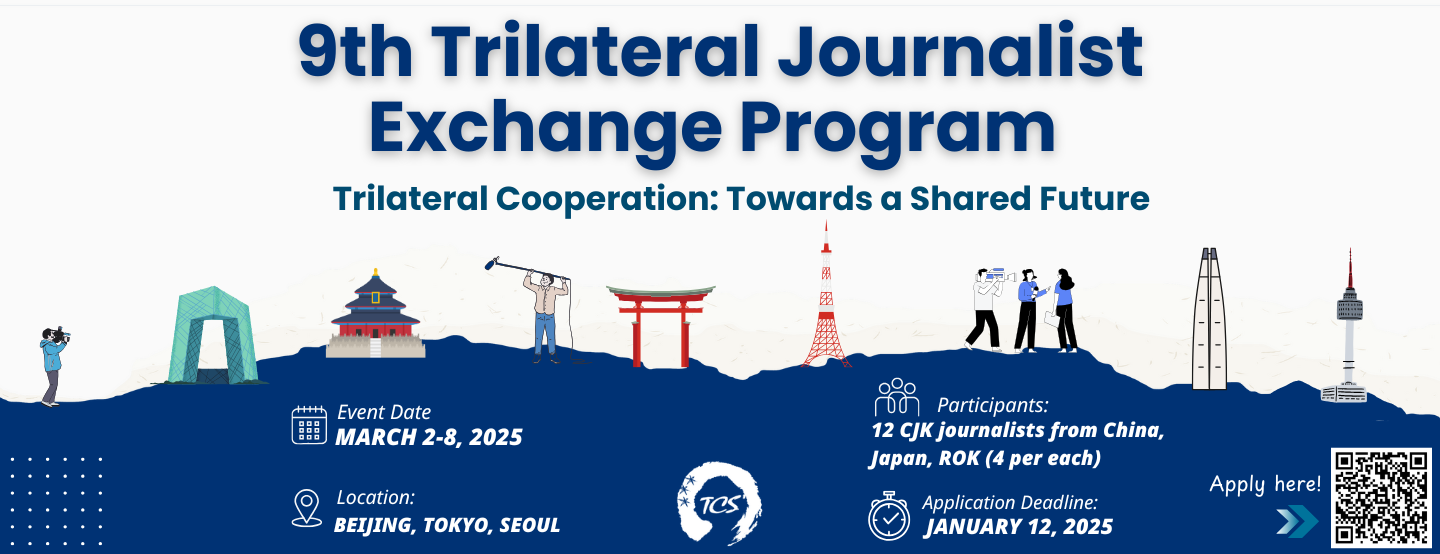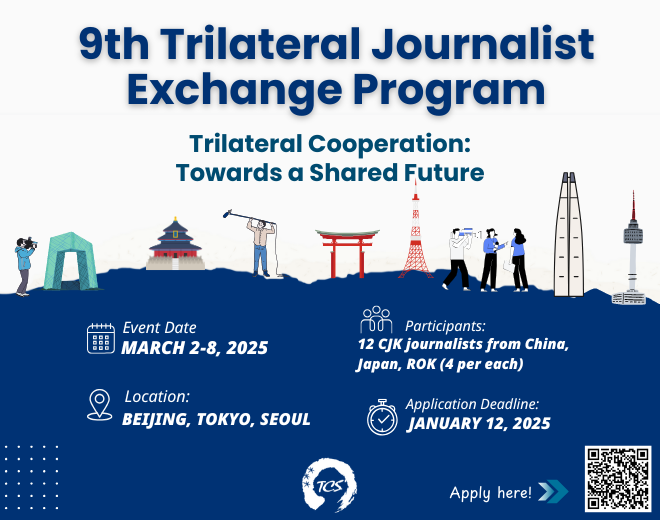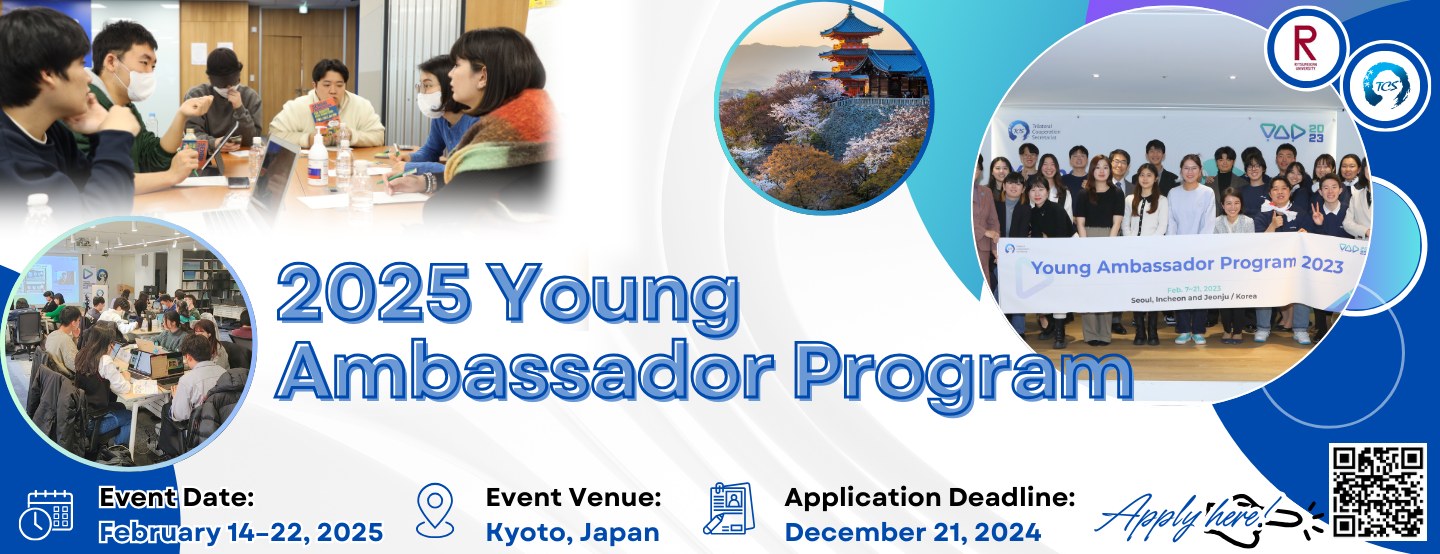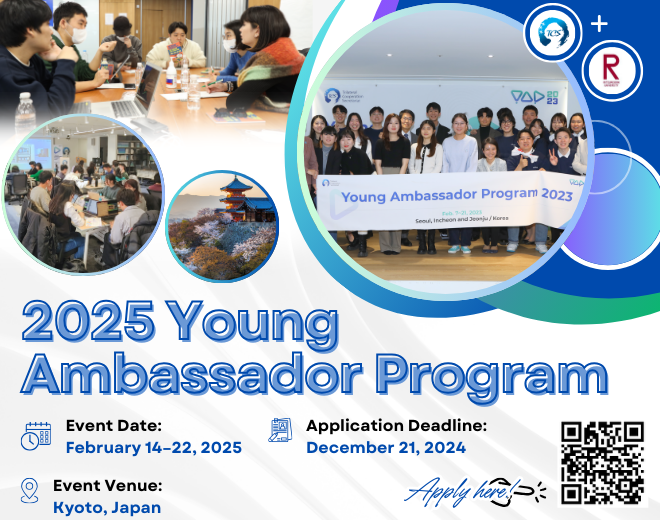Trilateral Cooperation
Secretariat News
Secretariat News
-
OthersFAO Delegation Visits the TCSOn September 22, Deputy Secretary-General YAN Liang warmly welcomed a delegation from the Food and Agriculture Organization of the United Nations (FAO) to the Trilateral Cooperation Secretariat (TCS). The delegation was led by Mr. Jeremie Mbairamadji, Coordinator of the Globally Important Agricultural Heritage Systems (GIAHS) Programme at the FAO headquarters in Rome, and included Mr. Tang Shengyao, FAO Representative at the FAO Partnership and Liaison Office in Seoul. Mr. Mbairamadji provided an overview of the GIAHS initiative, describing it as a living heritage system sustained by communities that have cultivated a deep and enduring relationship with their environment. He further explained FAO’s ongoing efforts to enhance cooperation, evaluation, and monitoring systems within the program. Mr. Tang highlighted the successful convening of the 9th Conference of the East Asia Research Association for Agricultural Heritage Systems (ERAHS) in Jeju, which gathered more than 300 participants. He reaffirmed the readiness of the FAO Seoul office to deepen collaboration with TCS and underscored that the recent Trilateral Agricultural Ministers’ Meeting (TAMM) identified six priority areas for cooperation, among which GIAHS was prominently included. DSG Yan introduced the Trilateral Young Rural Leaders’ Exchange Program (TREP) as one of TCS’s flagship initiatives and expressed TCS’s commitment to further advancing “Trilateral+X” cooperation. He emphasized the rich agricultural heritage shared by China, Japan, and Korea, noting TCS’s dedication to promoting knowledge exchange and practical cooperation to bring tangible benefits to the people of the region.▲Group photo▲DSG Yan with Mr. Jeremie Mbairamadji, Coordinator of the GIAHS Programme, FAO headquaters2025-09-22
-
Seminar & ForumTCS Participates in the Women’s Global Economy Conference 2025 in Osaka, JapanOn September 20, 2025, the Women’s Global Economy Conference 2025 was held in Osaka, Japan, organized by the Conference Executive Committee. The event opened with remarks by Ms. SAWADA Takuko, Director of the Executive Committee, followed by a video message from Mr. FUKUDA Yasuo, former Prime Minister of Japan. Congratulatory remarks were then delivered by Mr. JING Chunhai, Counselor for Economic and Commercial Affairs at the Consulate-General of China in Osaka, Mr. LEE Hee-sup, Secretary-General of the Trilateral Cooperation Secretariat (TCS), and Mrs. MATSUKAWA Rui, Member of the House of Councillors and former (1st) Deputy Secretary-General of TCS.In his remarks, SG Lee emphasized the central role of women in trilateral cooperation, noting that their participation is critical to addressing challenges such as labor shortages and the weakening of local regions caused by overconcentration in the capitals. He also highlighted that China, Japan, and the Republic of Korea rank comparatively low in both birthrate and gender equality indices, reflecting issues such as unequal distribution of domestic and childcare responsibilities, career interruptions for women, income disparities, and the costs associated with children’s education. He concluded by stressing that the untapped potential of women should be fully harnessed to drive social progress and strengthen trilateral cooperation, reaffirming TCS’s support for such initiatives.The conference featured three thematic sessions: (1) The Future Seen from the Trilateral Economic Environment (Low Birthrate and Aging, Healthcare and Nursing Care, Public Services); (2) Future Vital Energy (Women and Youth); and (3) The Future of Osaka and Kansai (Toward the Realization of a Healthy Aging Society). The sessions were followed by a keynote speech by Mr. MORI Rintaro, Mayor of Takarazuka City.In Session 2, TCS contributed to discussions on “Women and Youth,” presenting how its youth programs are designed to engage participants from diverse backgrounds and genders, thereby fostering trilateral cooperation through a wide range of approaches.▲Group Photo▲SG Lee delivering remarks▲TCS program officer introducing TCS Youth Exchange Programs▲Mrs. MATSUKAWA Rui, former Deputy Secretary-General of TCS and SG Lee2025-09-20
-
Seminar & ForumTCS Participated in the 9th Conference of East Asia Research Association for Agricultural Heritage Systems (ERAHS)On September 17-20, 2025, the 9th Conference of East Asia Research Association for Agricultural Heritage Systems (ERAHS) was held in Jeju, Korea, jointly organized by the East Asia Research Association for Agricultural Heritage Systems (ERAHS), Jeju Special Self-governing Province, and the Korea Rural Heritage Association (KRHA). TCS is invited to attend the joint meeting of Korea-China-Japan central governments and ERAHS, which was convened for the first time as part of the Conference.During the meeting, the TCS delegation presented the latest developments in trilateral cooperation, highlighting TCS’s mandates and activities. The Trilateral Young Rural Leaders Exchange Program (TREP) was presented as a key example of TCS’s efforts to promote trilateral agricultural cooperation. The presentation also introduced TCS’s broader endeavors across diverse economic sectors, including trade, environment, transport and logistics, water resources as well as new initiatives in STEM and IPR. The Conference of ERAHS is an annual academic and policy platform established in 2014 to advance the conservation and sustainable development of Globally Important Agricultural Heritage Systems (GIAHS) in East Asia. Held under the theme of “Sustainable Conservation of IAHS and Restoration of Community,” this year’s conference featured six sessions and introduced a new intergovernmental mechanism to strengthen regional policy cooperation in line with global initiatives, building on the agreement reached at the 4th Trilateral Agricultural Ministers’ Meeting in August 2025.▲9th Conference of ERAHS in progress▲TCS Assistant Director of Economic Affairs delivering a presentation at the working-level meeting2025-09-17 ~ 2025-09-20
-
Seminar & ForumSG LEE delivered remark at the 2025 International Forum on Regional Cooperation and Development of China, Japan, and the ROKOn 19 September 2025, the Trilateral Cooperation Secretariat (TCS) delegation led by Secretary-General LEE Hee-sup attended the 2025 International Forum on Regional Cooperation and Development of China, Japan, and the ROK in Beijing, China. Co-organized by Beijing Foreign Studies University (BFSU) and China Daily, the Forum brought together more than 200 academic representatives from the three countries. In his remarks at the opening ceremony, SG LEE emphasized the critical need for the three countries to strengthen supply chain resilience and advance free trade agreements. Stressing that cooperation is more vital than ever amidst global uncertainties, he outlined a shared vision to lead in AI, clean energy, and bio-technology, positioning the region as a powerful alternative in global innovation. The Forum serves as a key platform to turn common challenges into opportunities for shared prosperity. During the official meeting with Vice President Zhao Gang and Professor NIU Huayong of BFSU, both sides expressed strong willingness to enhance cooperation in areas such as economic trade and youth exchanges.▲SG LEE delivering his remark▲Official meeting with BFSU2025-09-19
Consultative Mechanism
3
- Countries
1
- Summit
21
- Ministerial Level Meetings
70+
- Other Consultative Mechanisms
Trilateral Statistics 2022
Publications
We provide project reports,
research outcomes, and
promotional materials
of the TCS
Latest from Media
View all
Discover Trilateral Cooperation in Media
